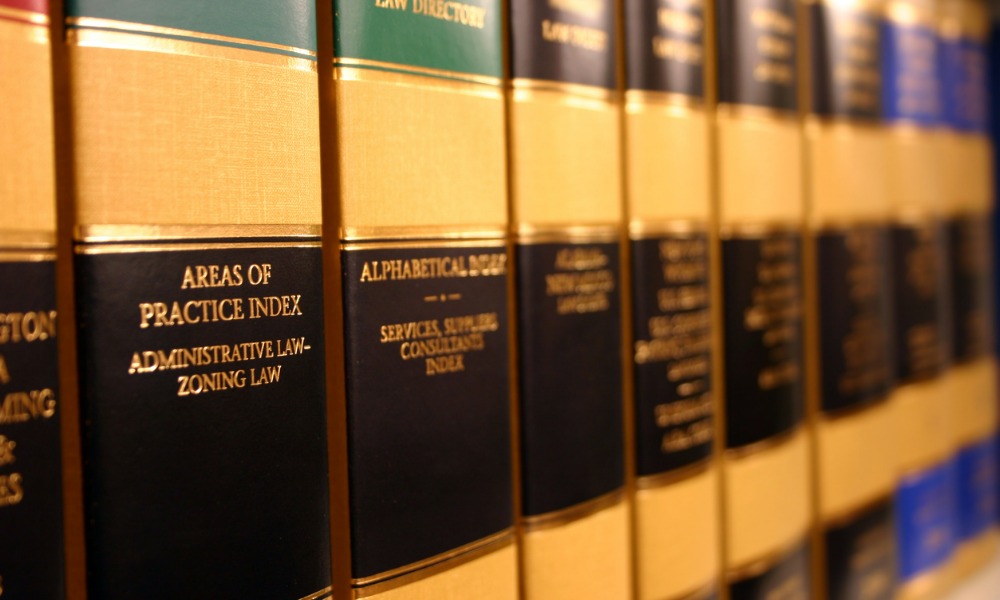
Man alleges discrimination, breaches of his rights under the Charter and Human Rights Code

In a recent case, the Ontario Court of Appeal partly allowed an appeal in a case where an aspiring lawyer asked for an order requiring the Law Society of Ontario (LSO) to issue him a licence to practise law.
The appellant stated that he was a naturalized Canadian of West Asian origin with a Persian/Russian/Uzbek Jewish background. In 2001, he came to Canada as a permanent resident of Israel.
He pursued the LSO’s requirements to obtain a licence to practise law. He completed the articling requirement through the LSO’s Law Practice Program (LPP). A Toronto law firm hired him as an articling student.
He passed the solicitor licensing examination on his third try. When he failed his fourth attempt at passing the barrister licensing examination, he was removed from the licensing process under the LSO’s policies.
He filed an action against the LSO and the other respondents – Performance Assessment Group Inc. and two individual consultants who helped design the LSO’s licensing exams.
He asked the court to declare that he fulfilled all licensing requirements and that the LSO’s structure, process, and evaluation method were discriminatory and violative of his rights under the Canadian Charter of Rights and Freedoms and under Ontario’s Human Rights Code, 1990.
The respondents moved to strike the appellant’s statement of claim for lacking a reasonable cause of action under r. 21.01(1)(b) of the Rules of Civil Procedure, R.R.O. 1990, Reg. 194.
Justice Marie-Andrée Vermette of the Ontario Superior Court of Justice dismissed his claims against the LSO under ss. 7 and 15 of the Charter and the Code relating to alleged discrimination based on mental/cognitive disability, without leave to amend. She dismissed his claims against the LSO under ss. 7 and 15 relating to alleged discrimination based on racial, ethnic, and cultural background but granted leave to amend the s. 15 Charter and Code claims under this ground.
The motion judge dismissed the appellant’s claims against the non-LSO respondents, without leave to amend.
Charter claims can be amended
In Shaulov v. Law Society of Ontario, 2023 ONCA 95, the Ontario Court of Appeal partly allowed the appeal, granted the appellant leave to amend his s. 15 Charter claims relating to discrimination, returned the issue of whether the administrative law claims should be dismissed under r. 21.01(1)(b) to the motion judge, and otherwise dismissed the appeal.
First, the appellant failed to allege any recognized deprivation of his right to liberty and/or security of the person, the appellate court ruled.
The appellant’s pursuit of a profession through completing the LSO’s licensing requirements was not a protected interest under s. 7 of the Charter, the appellate court said. The licensing requirements did not qualify as state interference with an individual interest of fundamental importance, the appellate court added.
Second, the appellant should be allowed to amend his s. 15 Charter and Code claims against the LSO relating to discrimination in general and should not be limited to pleading discrimination based only on race, culture, and ethnic background, the appellate court held.
The appellant claimed that the ideological, cultural, and linguistic orientation of the structure and contents of the licensing exams prevented him, as a person from a different background, from succeeding and discriminated against him because it did not test his competency to practice law, to which his articling principal and the LPP lawyers attested.
Third, the appellate court determined that the judge correctly found that s. 46.1(2) of the Code applied to the appellant’s claims against the non-LSO respondents.
Lastly, the judge wrongly concluded that the Superior Court lacked jurisdiction to decide the administrative law claims regarding the exercise of a statutory power, given that the appellant commenced them through an action instead of through an application, the appellate court said.